OWL (Offer of Wise-Minded Learning): “Hound Dog” Day
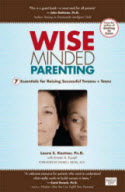 Sniffing out what you’ve been avoiding
Sniffing out what you’ve been avoiding
Is there something that you should be sniffing out? We tend to avoid things that make us uncomfortable or feel like a burden. What have you pushed to the outside of your awareness that requires more of your parenting attention? It could be planning fun things for your next school break (or summer), asking the mom squad about a classmate that your child has recently befriended, selecting sex ed books for your teen’s perusal, or using that password you have for checking your middleschooler’s Facebook page.
Read more in Wise-Minded Parenting: 7 Essentials for Raising Successful Tweens + Teens.
More OWL Videos
 Lie Low and Wear Beige Find out what kids say when you aren’t reactive. Use this technique when you hear your tween or teen talking to other kids about stuff that normally you would have big opinions on (this often happens during carpool)...
Lie Low and Wear Beige Find out what kids say when you aren’t reactive. Use this technique when you hear your tween or teen talking to other kids about stuff that normally you would have big opinions on (this often happens during carpool)... 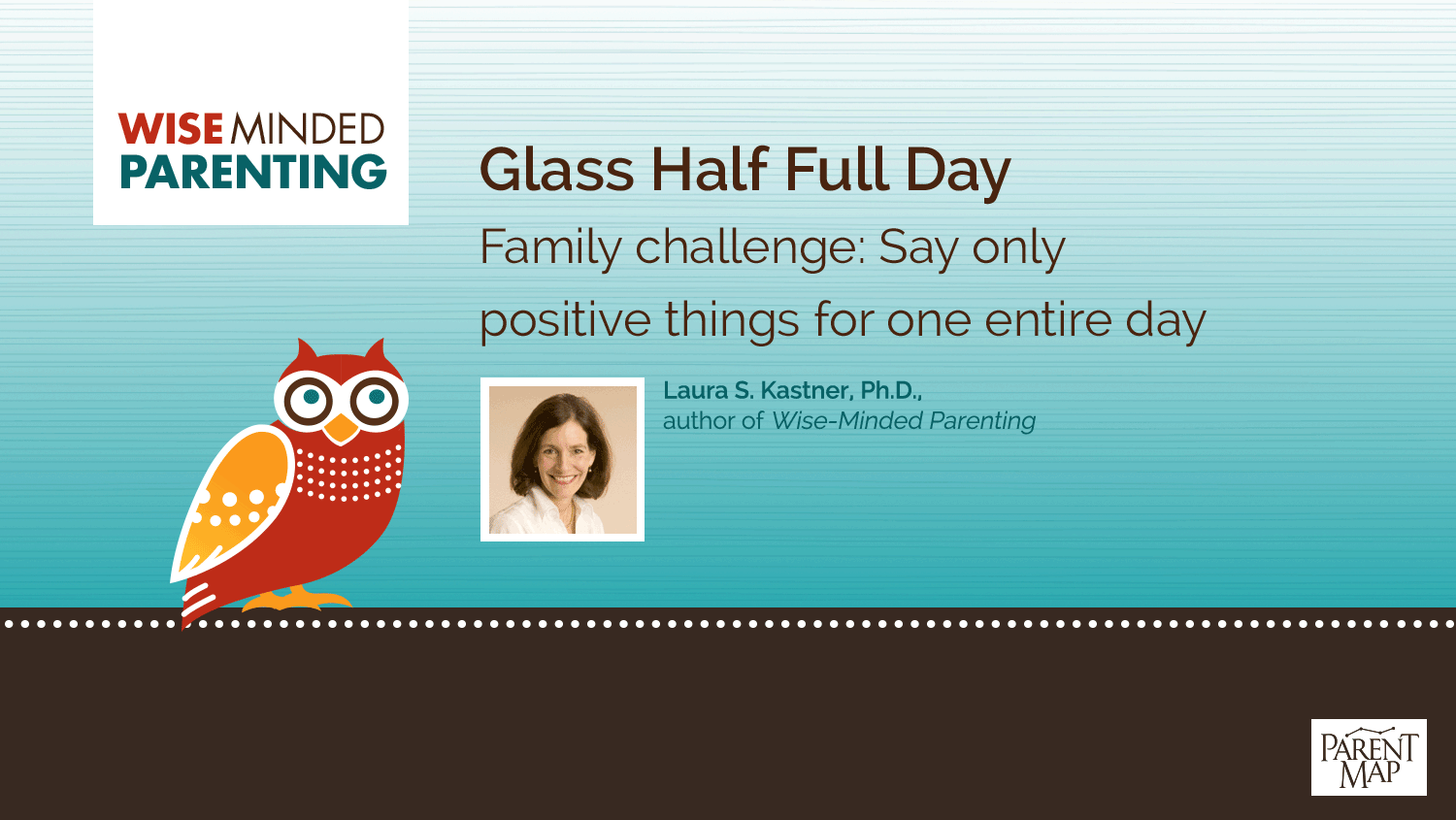 Glass Half Full Day Challenge the whole family to only say positive things for one entire day. Keep score. Everyone gets a point after they have shared a positive statement.
Glass Half Full Day Challenge the whole family to only say positive things for one entire day. Keep score. Everyone gets a point after they have shared a positive statement. 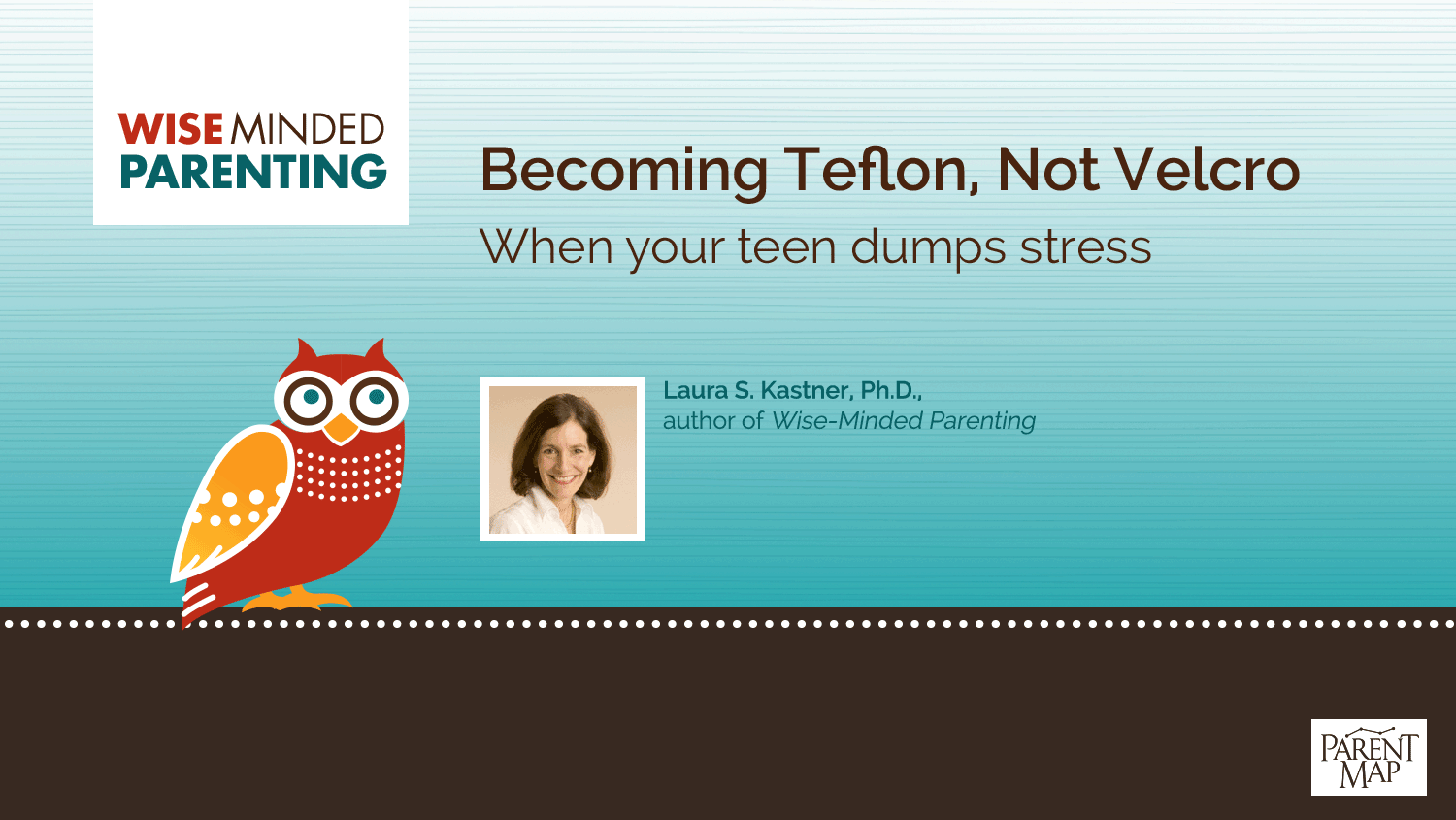 Becoming Teflon, Not Velcro For kids, keeping negative behaviors at bay at school creates stress, which they often dump on their parents. Dumping also happens because parents intrude on privacy, enforce rules and have expectations...
Becoming Teflon, Not Velcro For kids, keeping negative behaviors at bay at school creates stress, which they often dump on their parents. Dumping also happens because parents intrude on privacy, enforce rules and have expectations... 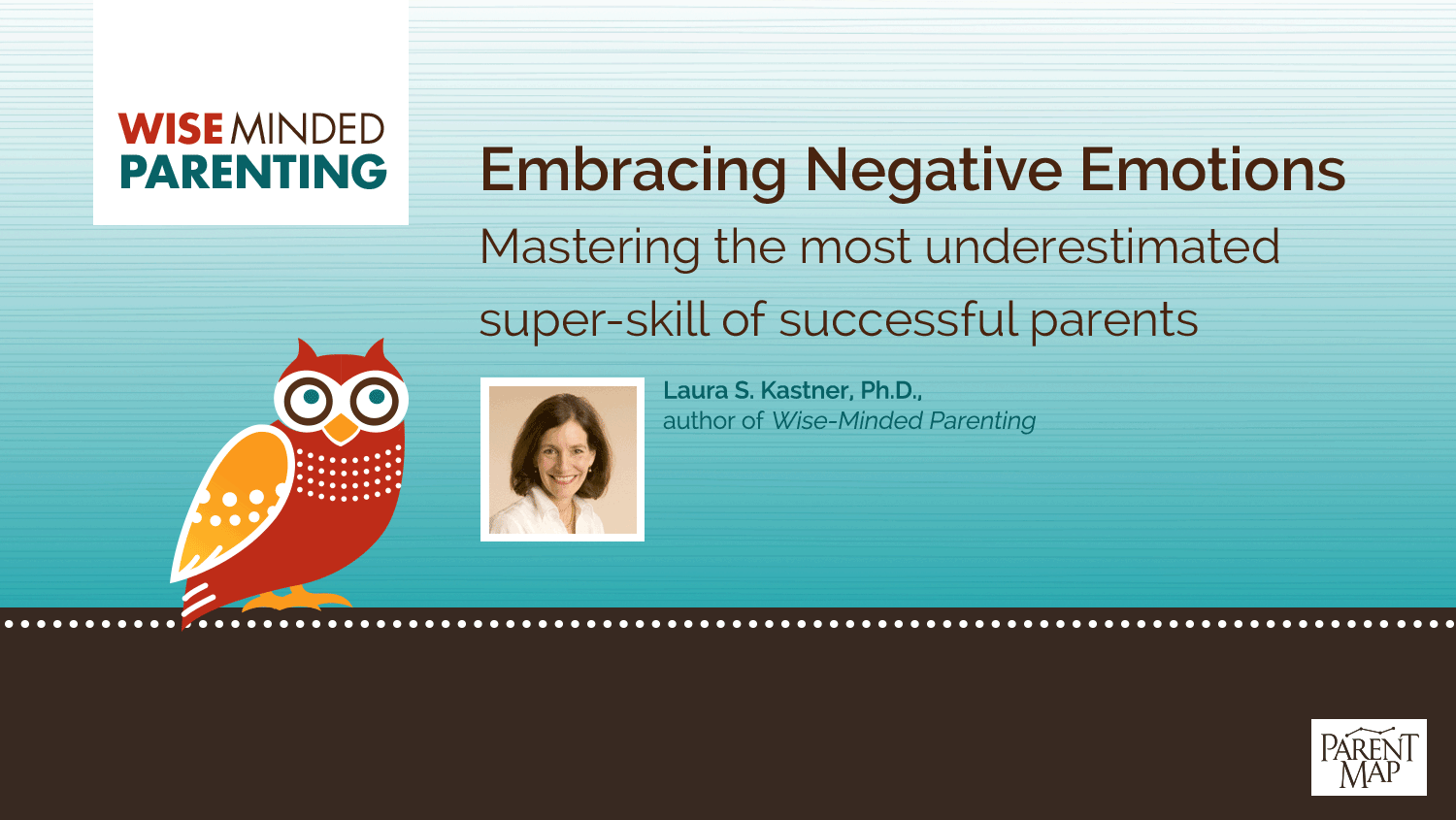 Embracing Negative Emotions Negative emotions are opportunities for bonding. This exercise goes beyond acceptance and helps your teen experience you as understanding, willing to sit with them their negative emotions.
Embracing Negative Emotions Negative emotions are opportunities for bonding. This exercise goes beyond acceptance and helps your teen experience you as understanding, willing to sit with them their negative emotions. 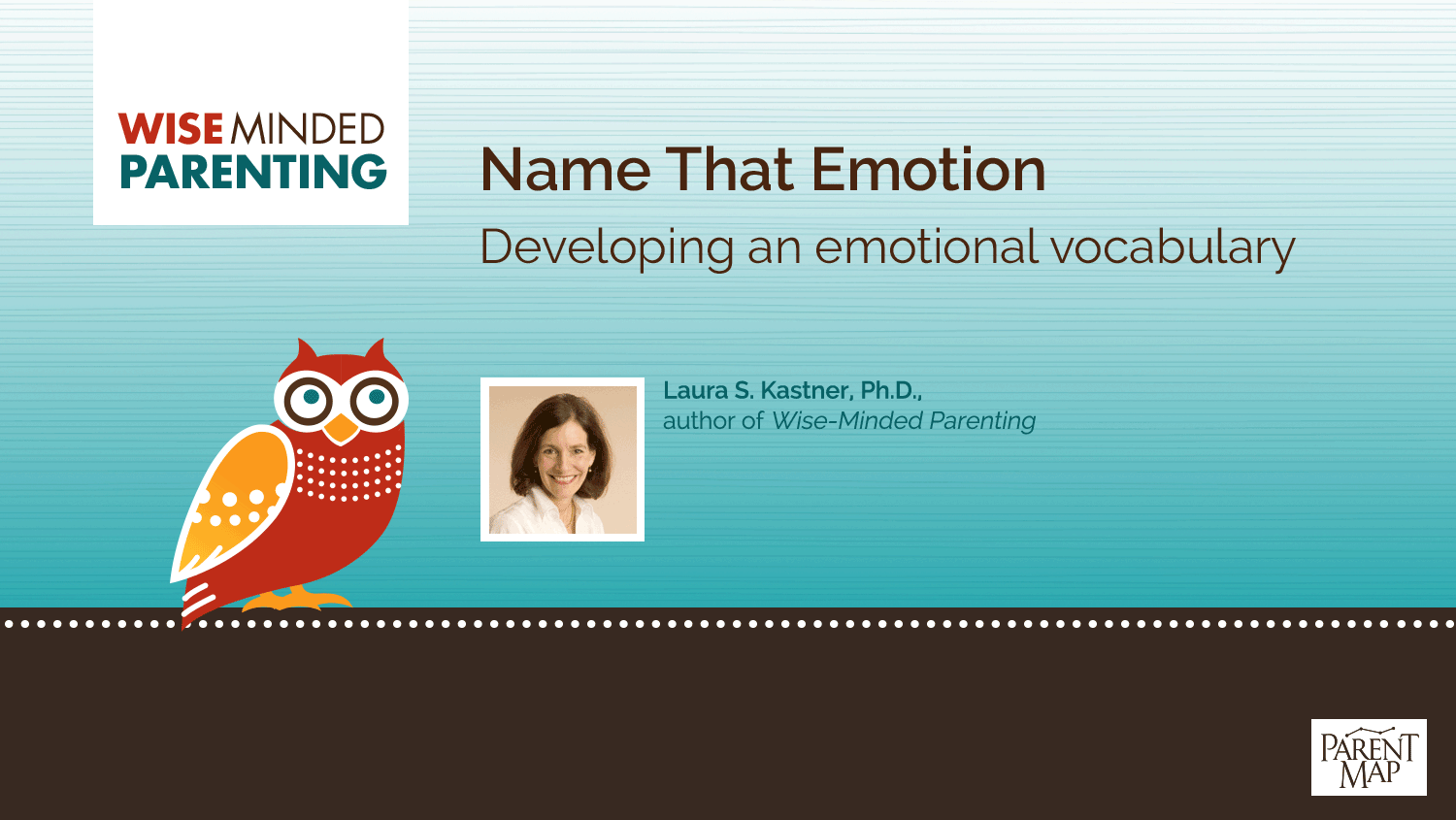 Name That Emotion People often don’t know how to describe how they feel, and kids especially can be confused and overwhelmed. Use emotional vocabulary, and encourage your child to do the same.
Name That Emotion People often don’t know how to describe how they feel, and kids especially can be confused and overwhelmed. Use emotional vocabulary, and encourage your child to do the same. 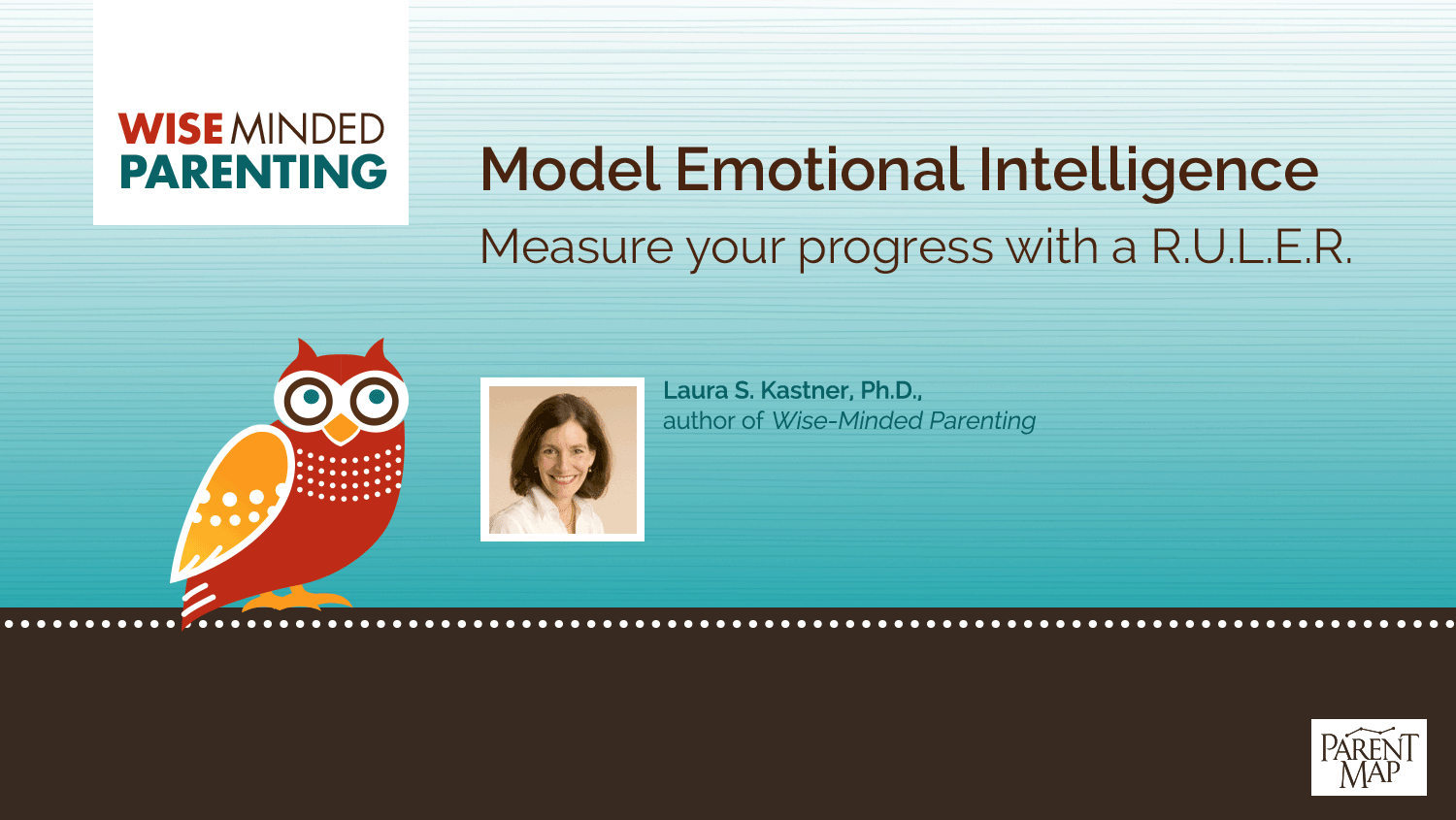 Model Emotional Intelligence All parents want their child to be able to recognize a feeling, understand its cause, label it accurately, express it appropriately and control the destructive feelings.
Model Emotional Intelligence All parents want their child to be able to recognize a feeling, understand its cause, label it accurately, express it appropriately and control the destructive feelings. 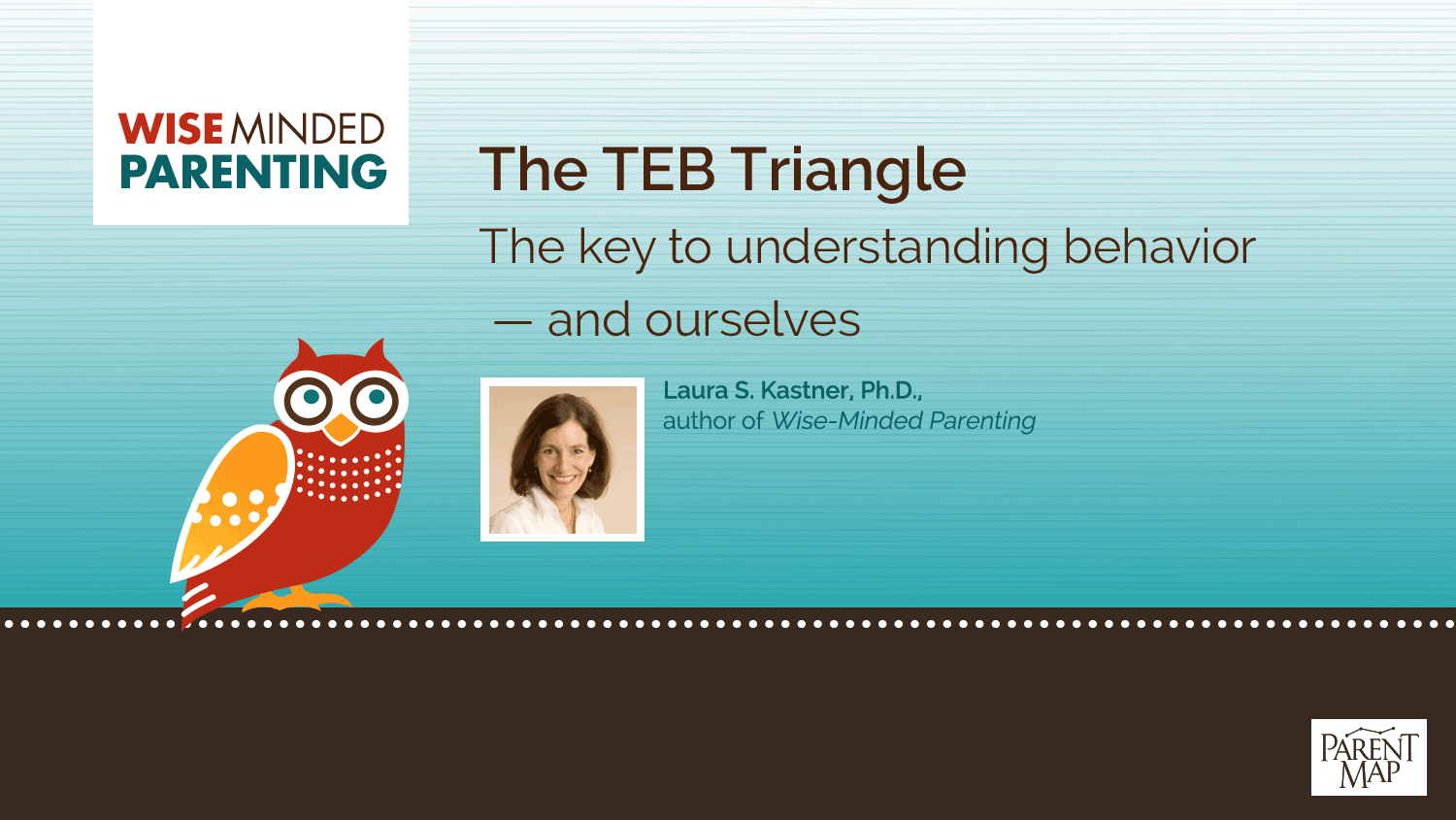 The TEB Triangle Thoughts… Emotions… Behaviors… They each influence each other…sometimes, all at the same time.
The TEB Triangle Thoughts… Emotions… Behaviors… They each influence each other…sometimes, all at the same time. 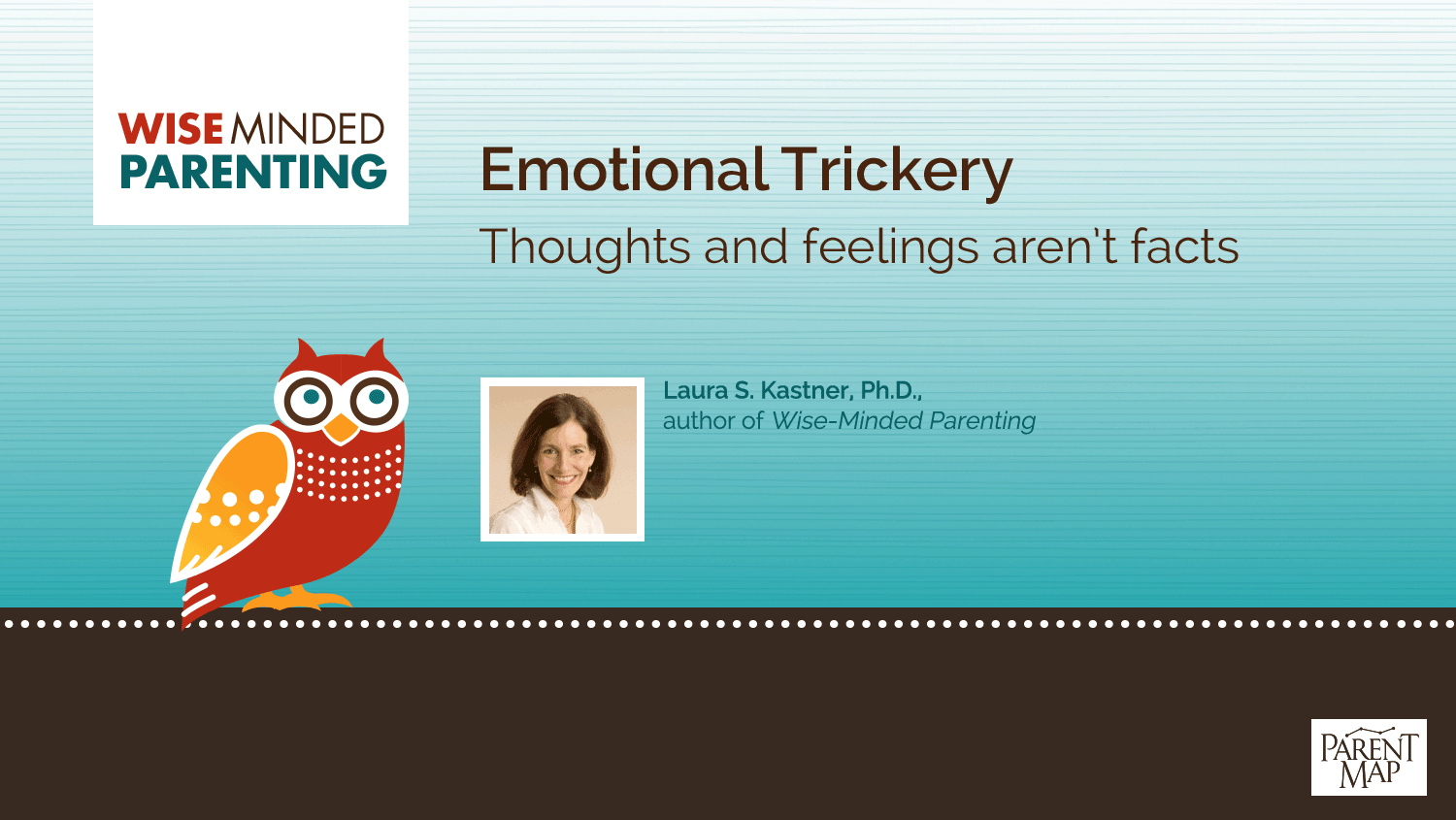 Emotional Trickery When we have our buttons pushed, our emotions trick us into thinking in extreme ways. This “fight or flight” response was created to save our lives in prehistoric times, but it rarely helps us in addressing problems with our teens.
Emotional Trickery When we have our buttons pushed, our emotions trick us into thinking in extreme ways. This “fight or flight” response was created to save our lives in prehistoric times, but it rarely helps us in addressing problems with our teens. 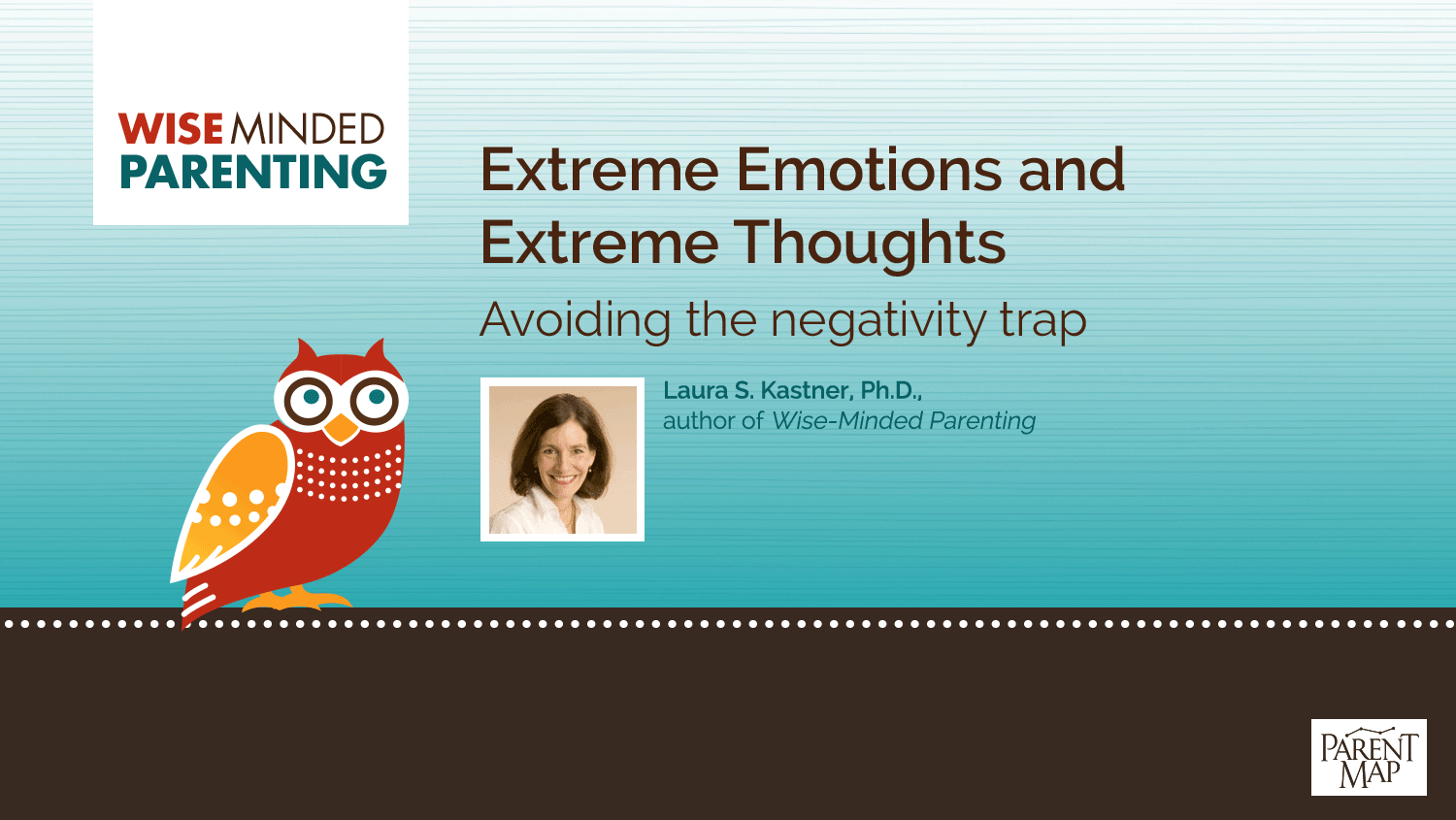 Extreme Emotions and Extreme Thoughts Extreme negativity prevents wise-minded problem solving, and there are some classic distorted thinking patterns we should all work to avoid.
Extreme Emotions and Extreme Thoughts Extreme negativity prevents wise-minded problem solving, and there are some classic distorted thinking patterns we should all work to avoid. 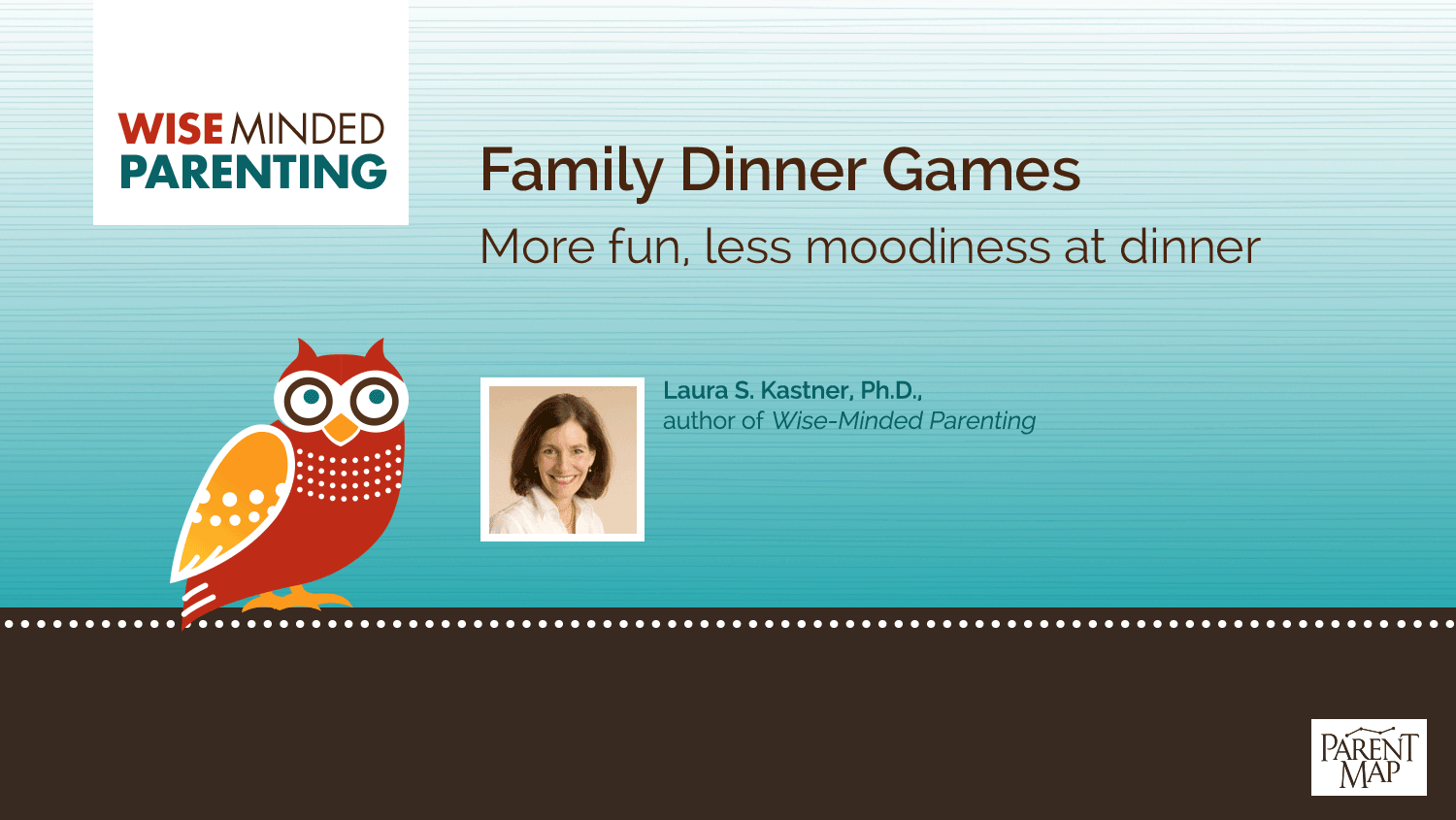 Family Dinner Games One reason family dinners fall by the wayside is that teens often bring their foul moods to the dinner table. Next time, try playing “Two truths and a lie” as a way for family members to share something from their day.
Family Dinner Games One reason family dinners fall by the wayside is that teens often bring their foul moods to the dinner table. Next time, try playing “Two truths and a lie” as a way for family members to share something from their day. 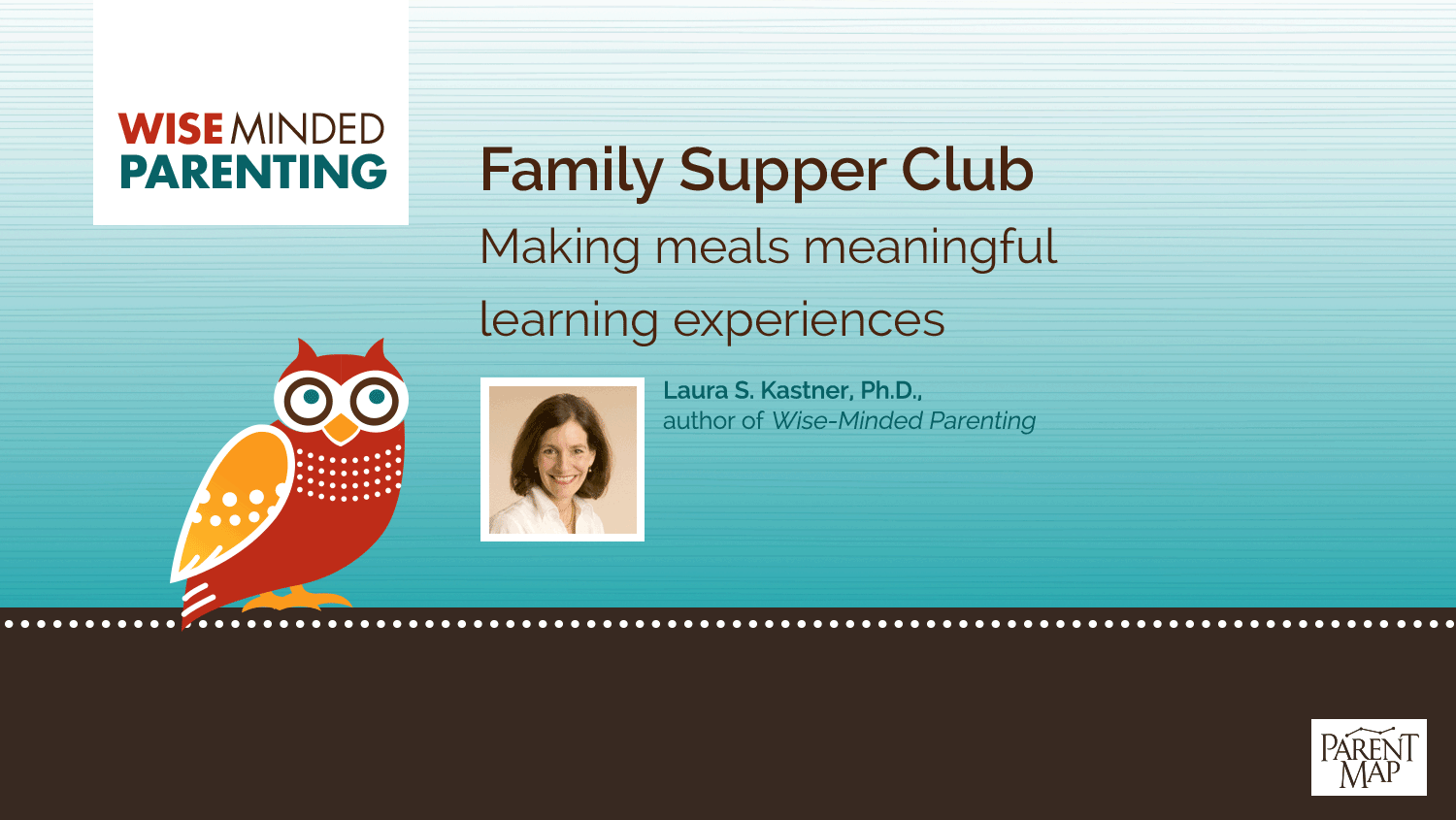 Family Supper Club Every teen should learn how to plan, cook and host nutritious meals. This week, start your own family supper club. Negotiate the night, the shopping, and the meal plan — but make it fun.
Family Supper Club Every teen should learn how to plan, cook and host nutritious meals. This week, start your own family supper club. Negotiate the night, the shopping, and the meal plan — but make it fun.  Homework Study Hall This week, tell your family that for an hour every night, family members will share time in the same room while they do homework together.
Homework Study Hall This week, tell your family that for an hour every night, family members will share time in the same room while they do homework together.  Media Dieting Are you satisfied your media consumption and use of your WMD’s (wireless mobile devices)? Are they under your control, or do they control you?
Media Dieting Are you satisfied your media consumption and use of your WMD’s (wireless mobile devices)? Are they under your control, or do they control you? 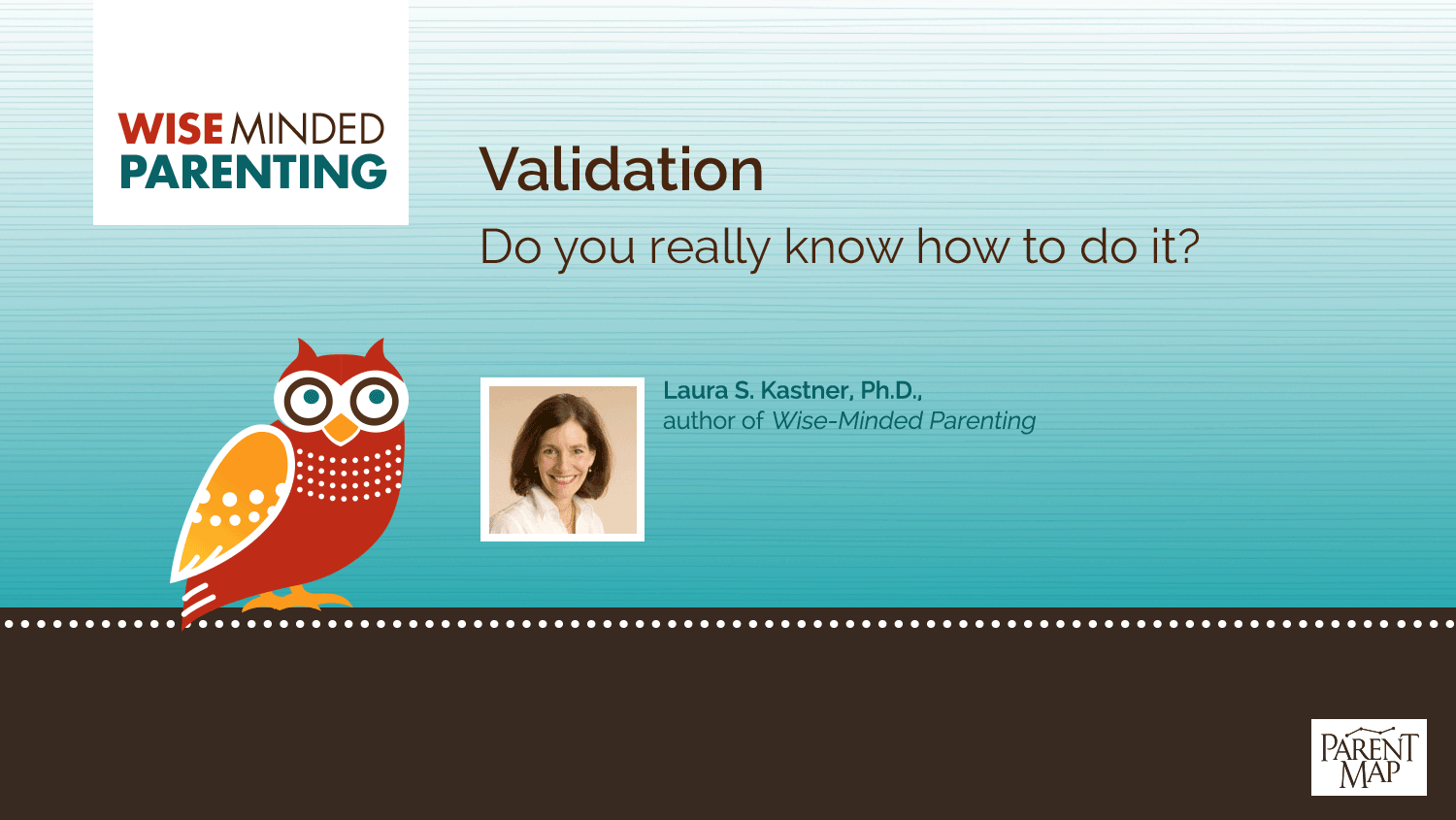 Validation: Do you really know how to do it? Validation is one of the all-time, most important interpersonal skills around. It’s especially important for responding to loved ones who are experiencing negative emotions, because it shows you understand.
Validation: Do you really know how to do it? Validation is one of the all-time, most important interpersonal skills around. It’s especially important for responding to loved ones who are experiencing negative emotions, because it shows you understand. 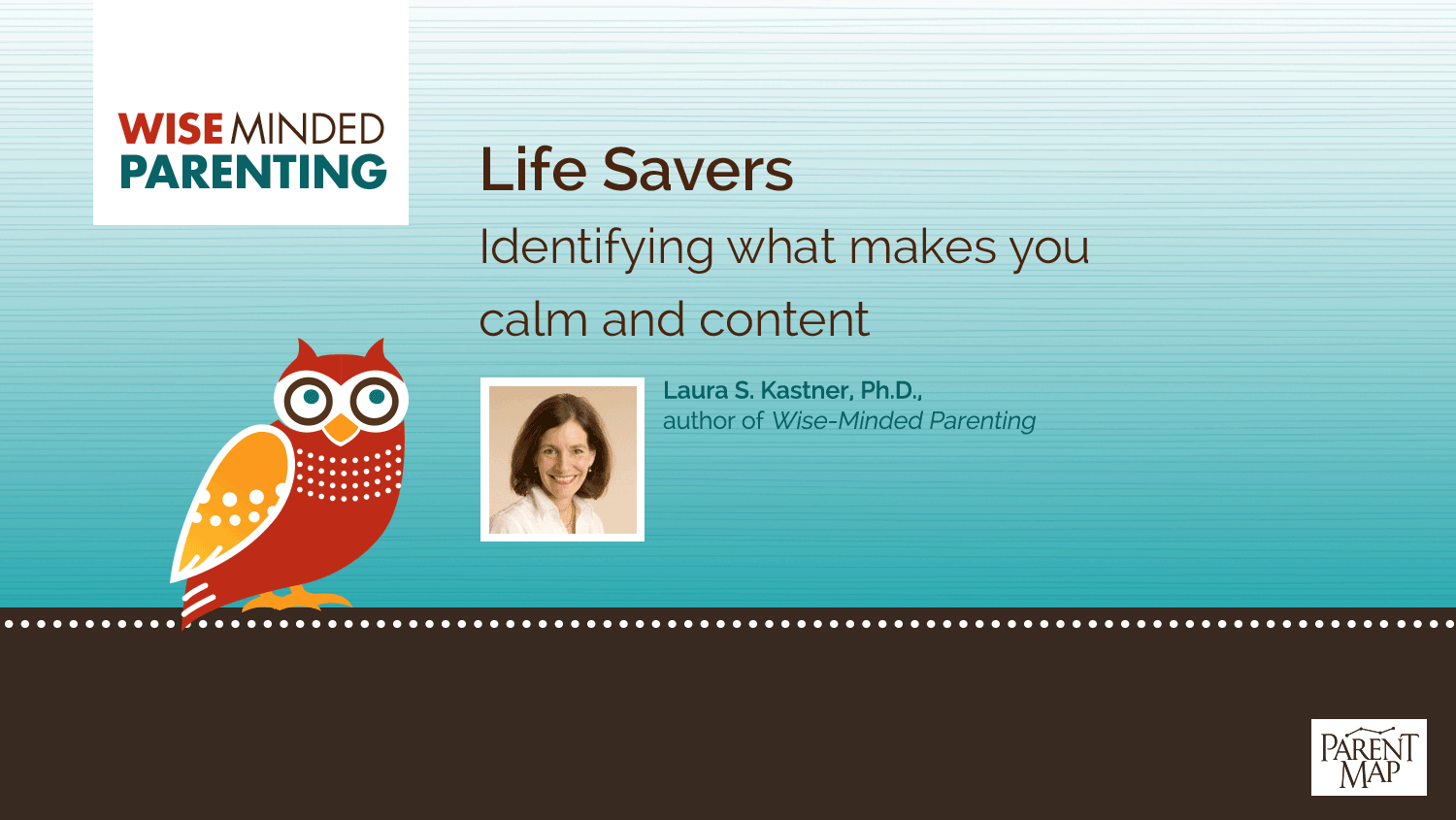 Life Savers: Identifying what makes you calm and content Since we are wired to feel more negative feelings than positive ones, and be affected by stressors throughout our environment, we need to be skillful at compensating for this biological reality by active use of coping skills.
Life Savers: Identifying what makes you calm and content Since we are wired to feel more negative feelings than positive ones, and be affected by stressors throughout our environment, we need to be skillful at compensating for this biological reality by active use of coping skills. 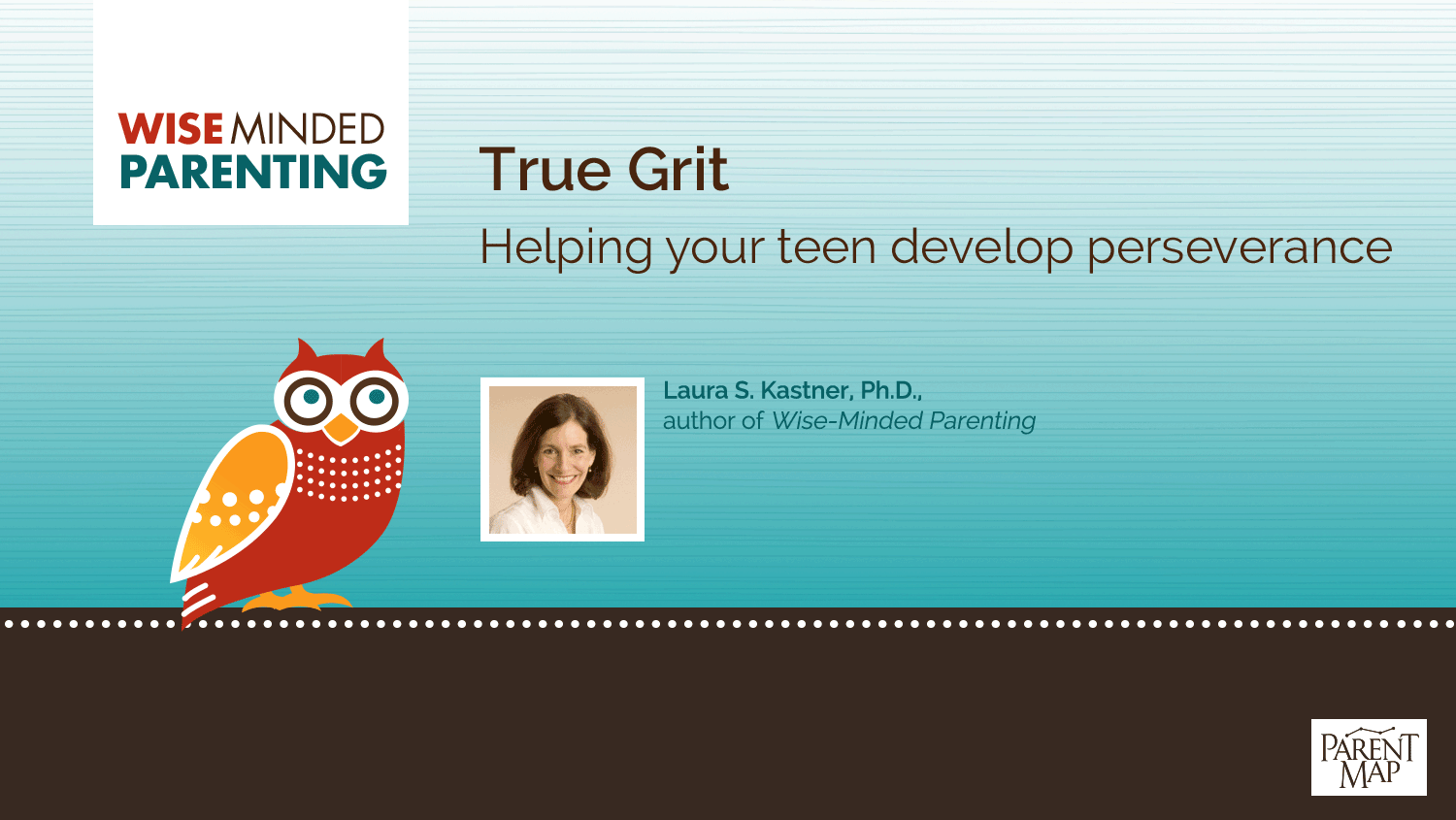 True Grit: Helping your teen develop perseverance People with true grit approach achievement like a marathon in which they keep going when others might flag, and they bounce back from setbacks and remove obstacles along the way.
True Grit: Helping your teen develop perseverance People with true grit approach achievement like a marathon in which they keep going when others might flag, and they bounce back from setbacks and remove obstacles along the way. 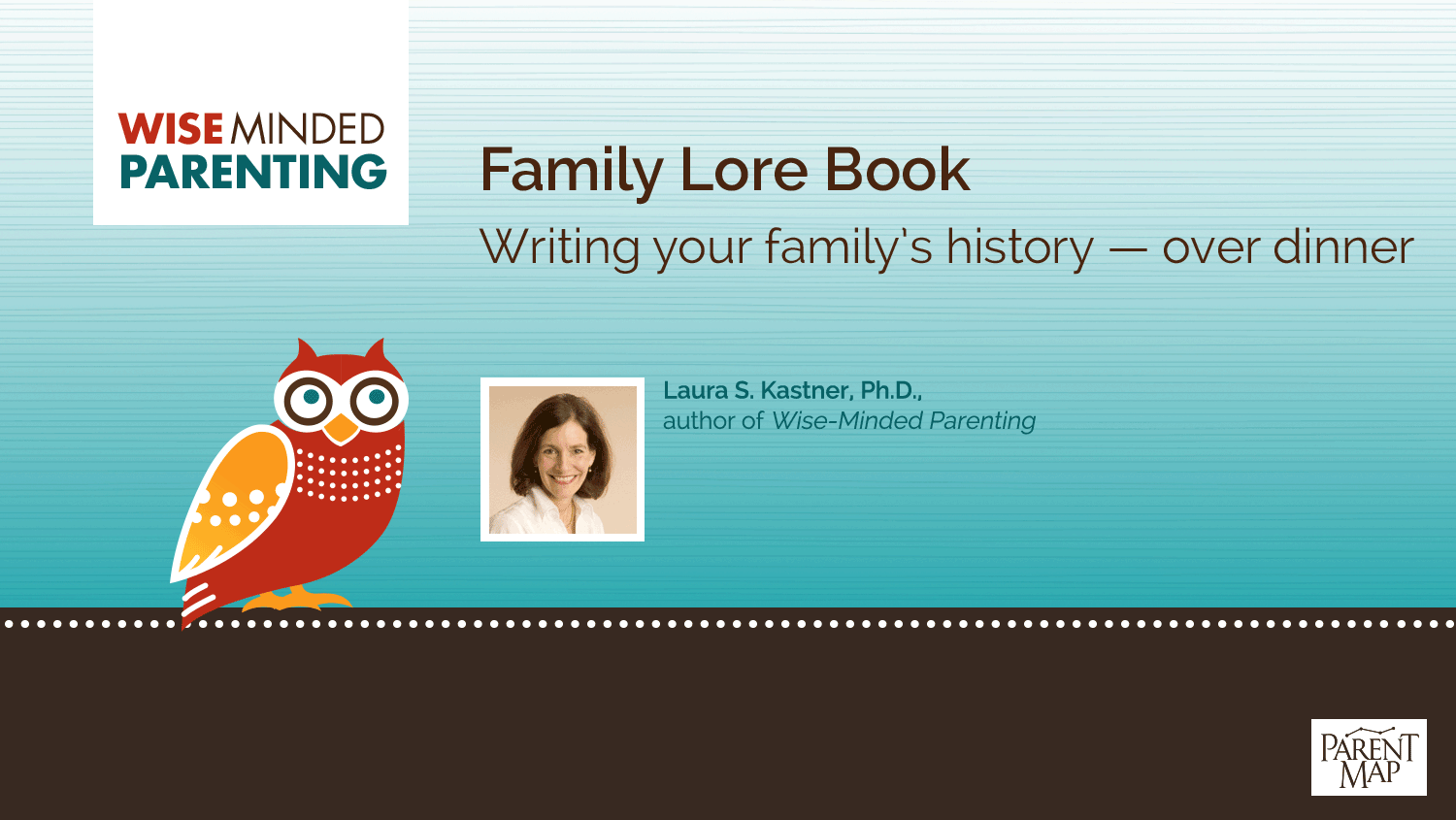 Family Lore Book: Writing your family’s history — over dinner What are the best, worst, funniest, proudest, scariest and most unique moments in your family’s life together…so far?
Family Lore Book: Writing your family’s history — over dinner What are the best, worst, funniest, proudest, scariest and most unique moments in your family’s life together…so far? 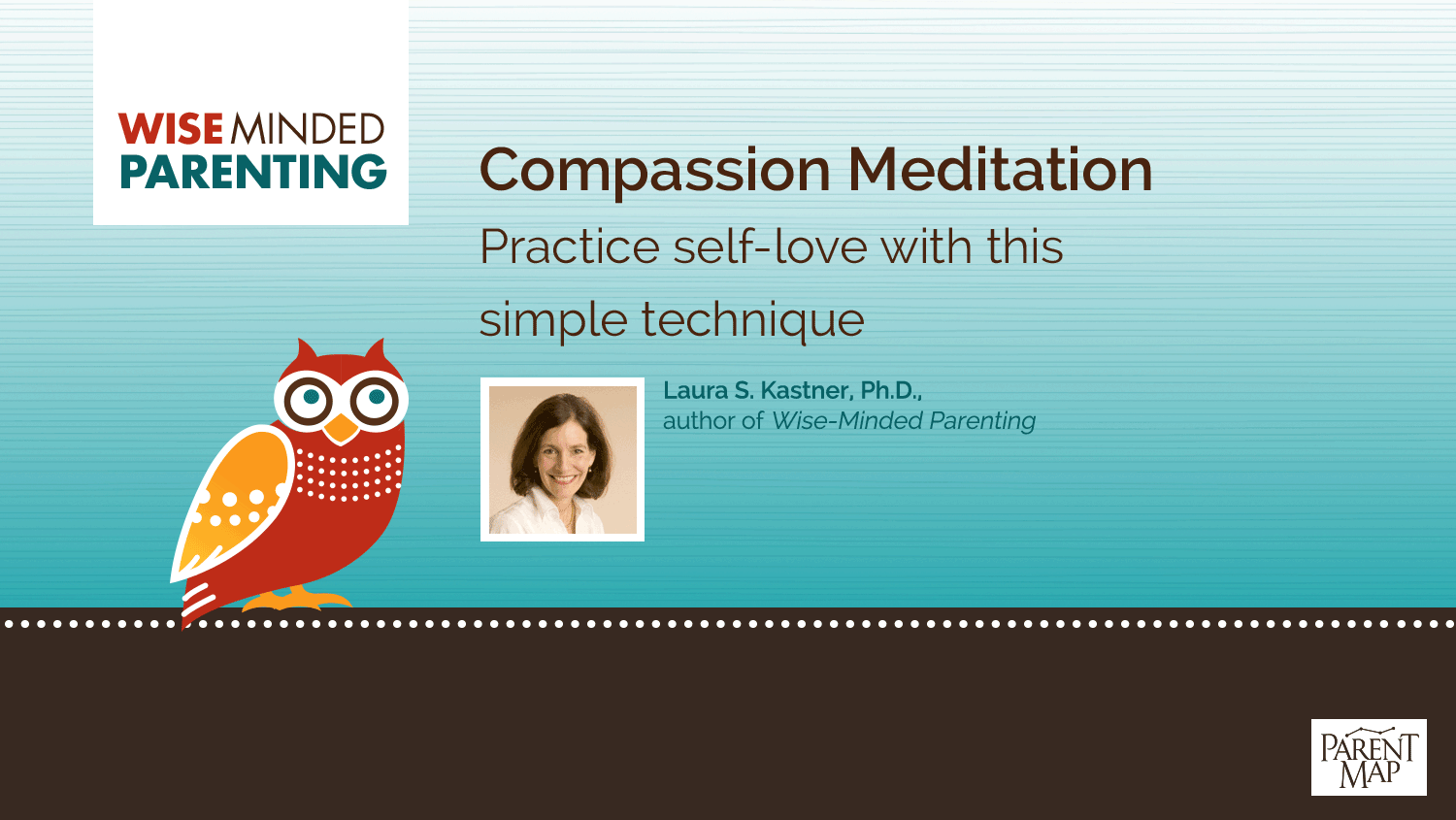 Compassion Meditation: Practice self- love with this simple technique It’s been proven that meditation and mindfulness make your mind and body healthier in many ways. For the parents of teenagers, a little meditation can bring welcome calm and perspective.
Compassion Meditation: Practice self- love with this simple technique It’s been proven that meditation and mindfulness make your mind and body healthier in many ways. For the parents of teenagers, a little meditation can bring welcome calm and perspective. 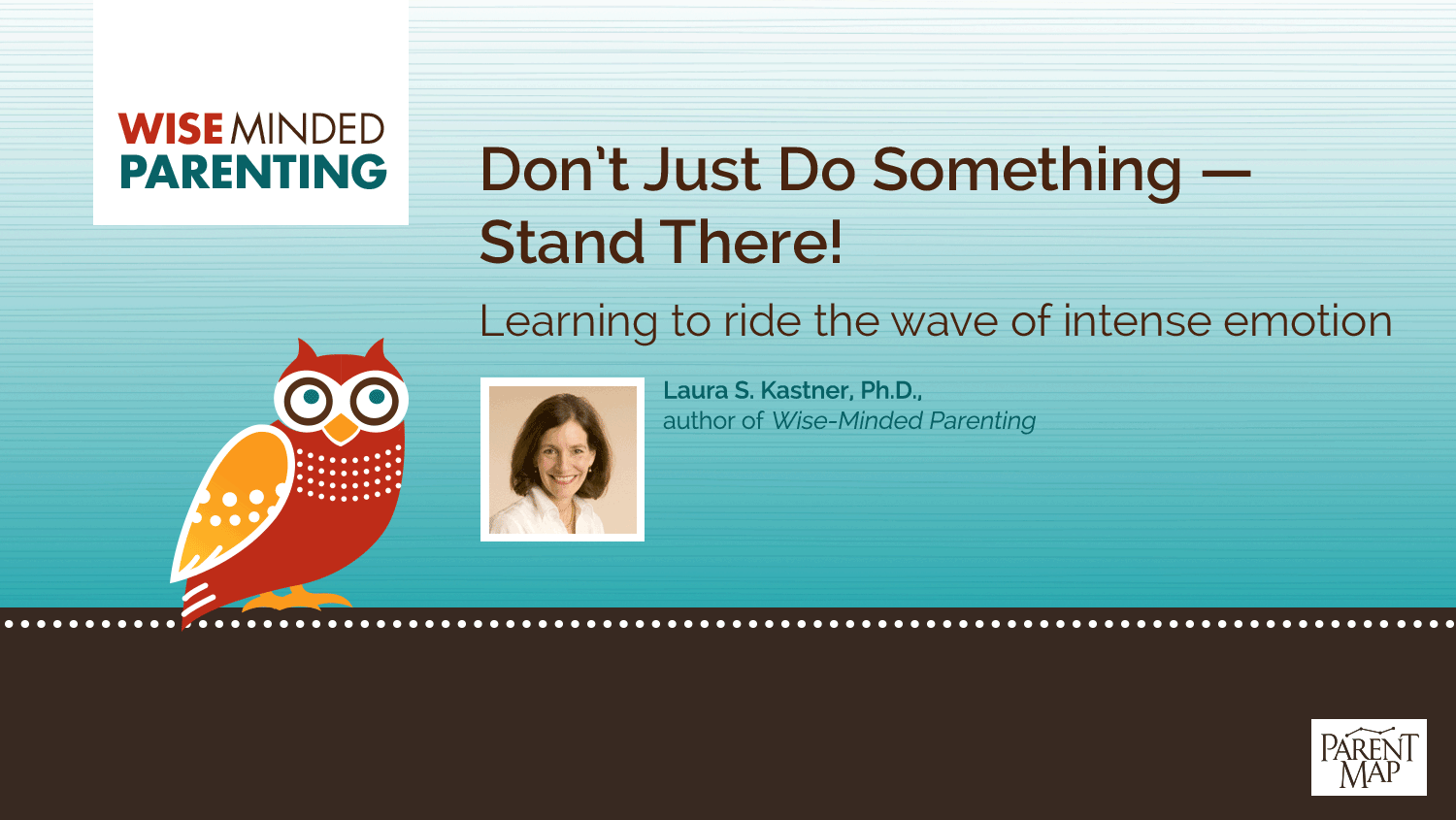 Don’t Just Do Something — Stand There! The next time you are really upset, instead of listening to your negative thoughts, or even actively trying to replace negative thoughts with realistic appraisals, try this technique of riding the wave.
Don’t Just Do Something — Stand There! The next time you are really upset, instead of listening to your negative thoughts, or even actively trying to replace negative thoughts with realistic appraisals, try this technique of riding the wave. 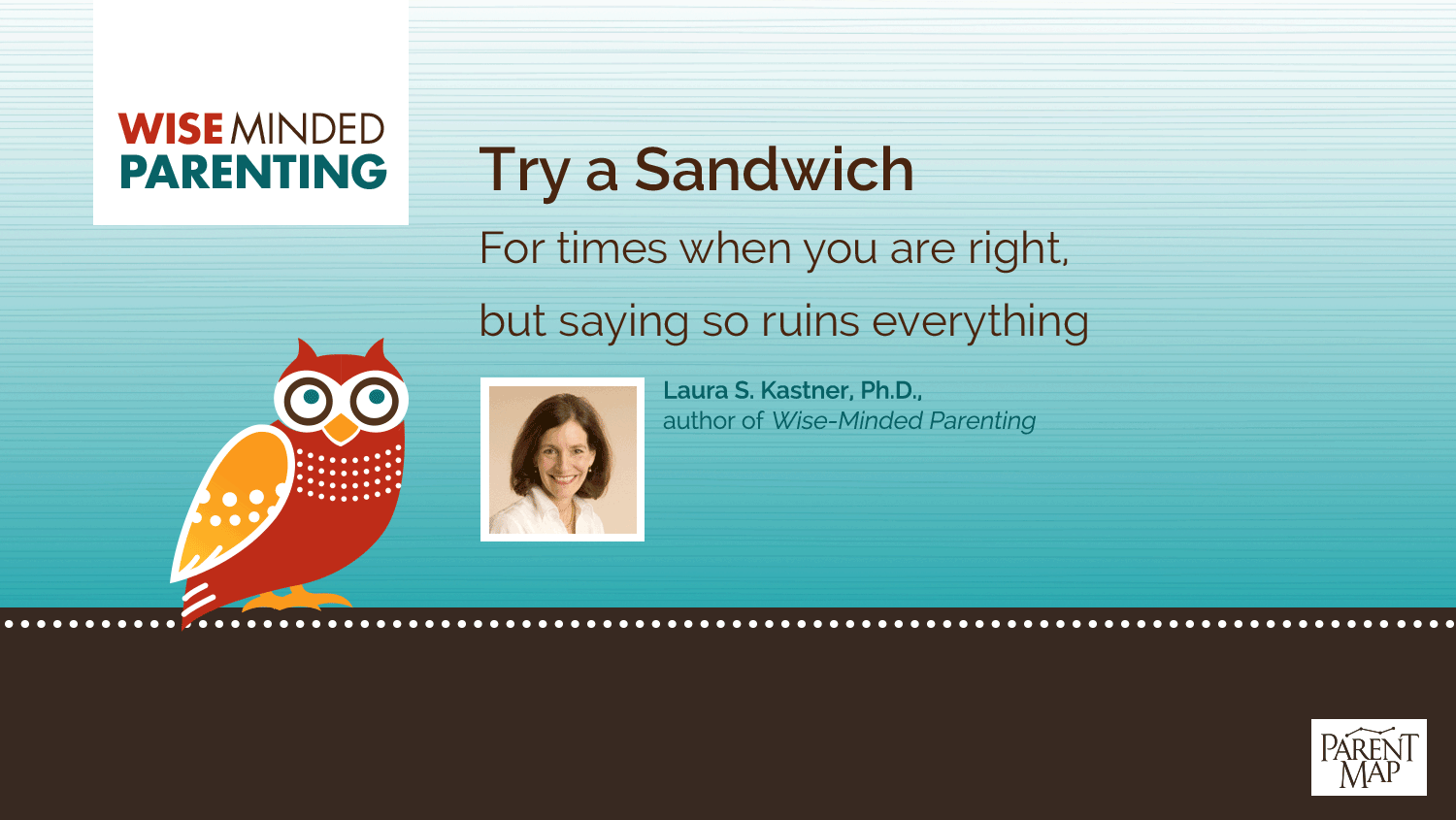 Try a Sandwich Dealing with problems by sticking to the facts translates to ignoring feelings and motivations. Try embedding the facts (the meat) within an empathic statement (one slice of soft bread) and a statement about expectations or problem-solving (the other slice of soft bread).
Try a Sandwich Dealing with problems by sticking to the facts translates to ignoring feelings and motivations. Try embedding the facts (the meat) within an empathic statement (one slice of soft bread) and a statement about expectations or problem-solving (the other slice of soft bread). 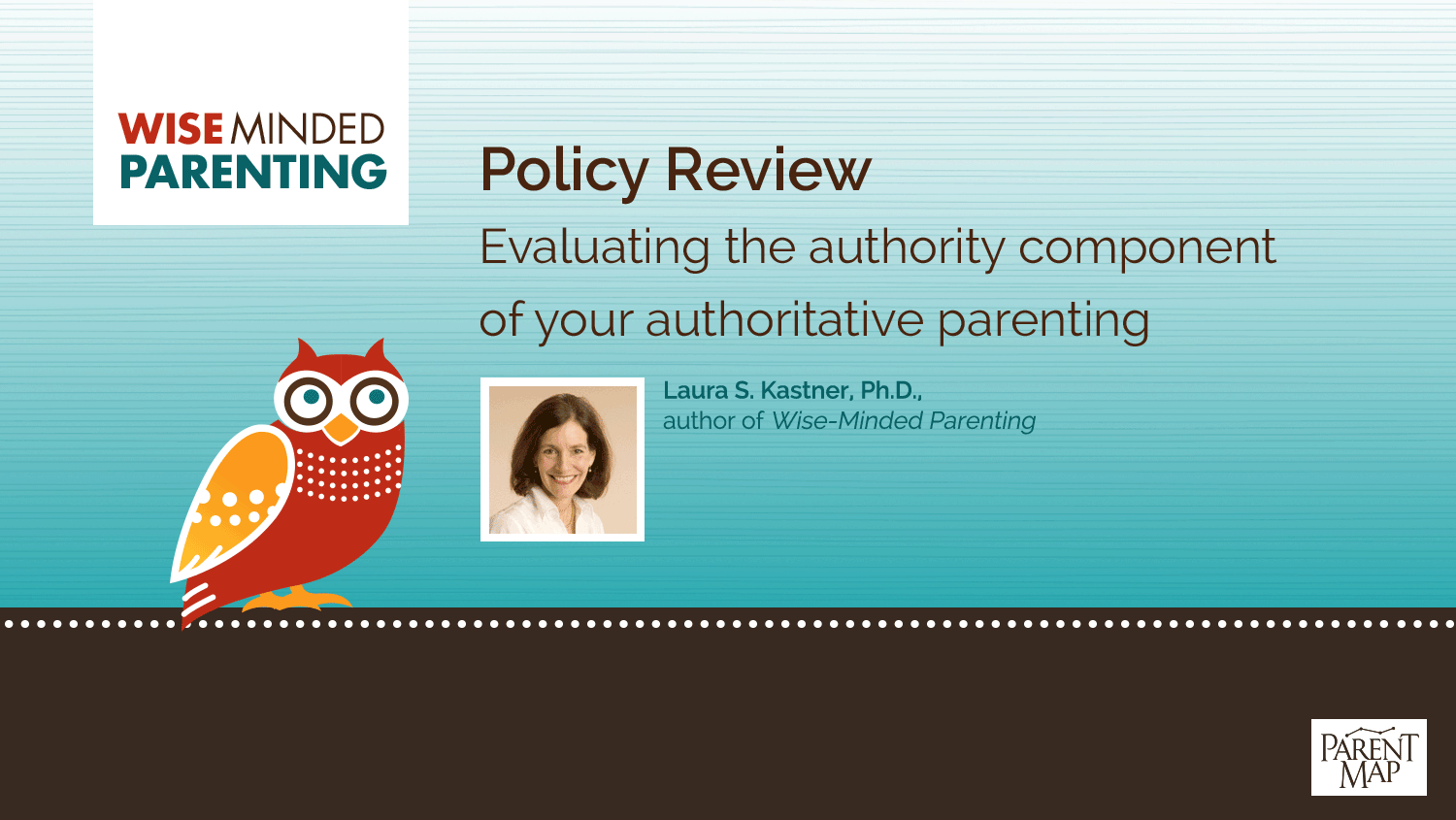 Policy Review Authoritative parenting is composed of warmth, authority and respect for the psychological autonomy of children. Authority includes making and enforcing rules, maintaining parent-child boundaries, and effective disciplinary measures.
Policy Review Authoritative parenting is composed of warmth, authority and respect for the psychological autonomy of children. Authority includes making and enforcing rules, maintaining parent-child boundaries, and effective disciplinary measures. 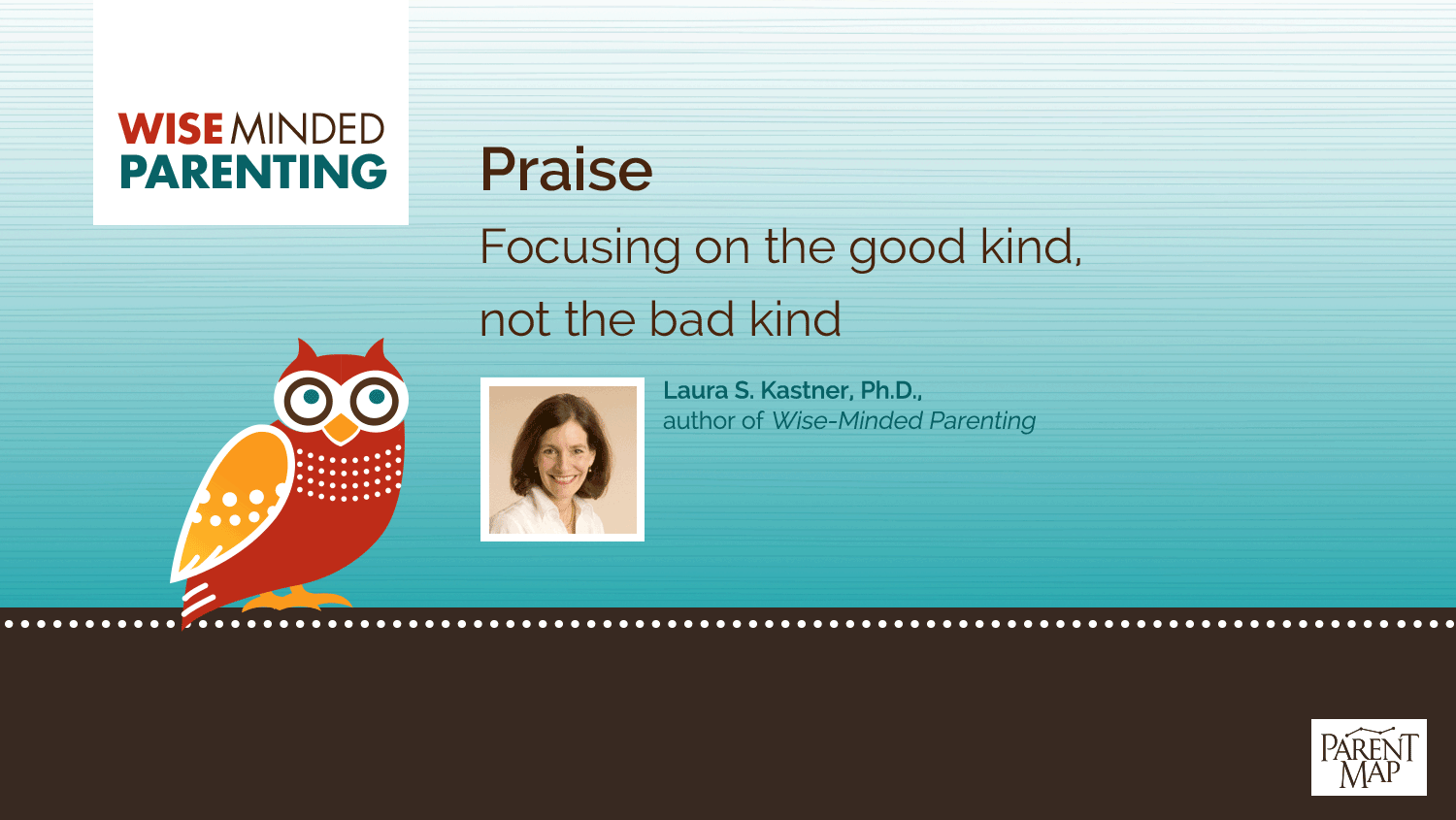 Praise: Focusing on the good kind, not the bad kind Praise is good when it is specific, genuine, accurate, intermittent, and in the right dose and tone for the person receiving it. In this form, it can build confidence, motivation and good feelings. The bad kind of praise is when it is excessive, inauthentic, constant, or non-existent.
Praise: Focusing on the good kind, not the bad kind Praise is good when it is specific, genuine, accurate, intermittent, and in the right dose and tone for the person receiving it. In this form, it can build confidence, motivation and good feelings. The bad kind of praise is when it is excessive, inauthentic, constant, or non-existent. 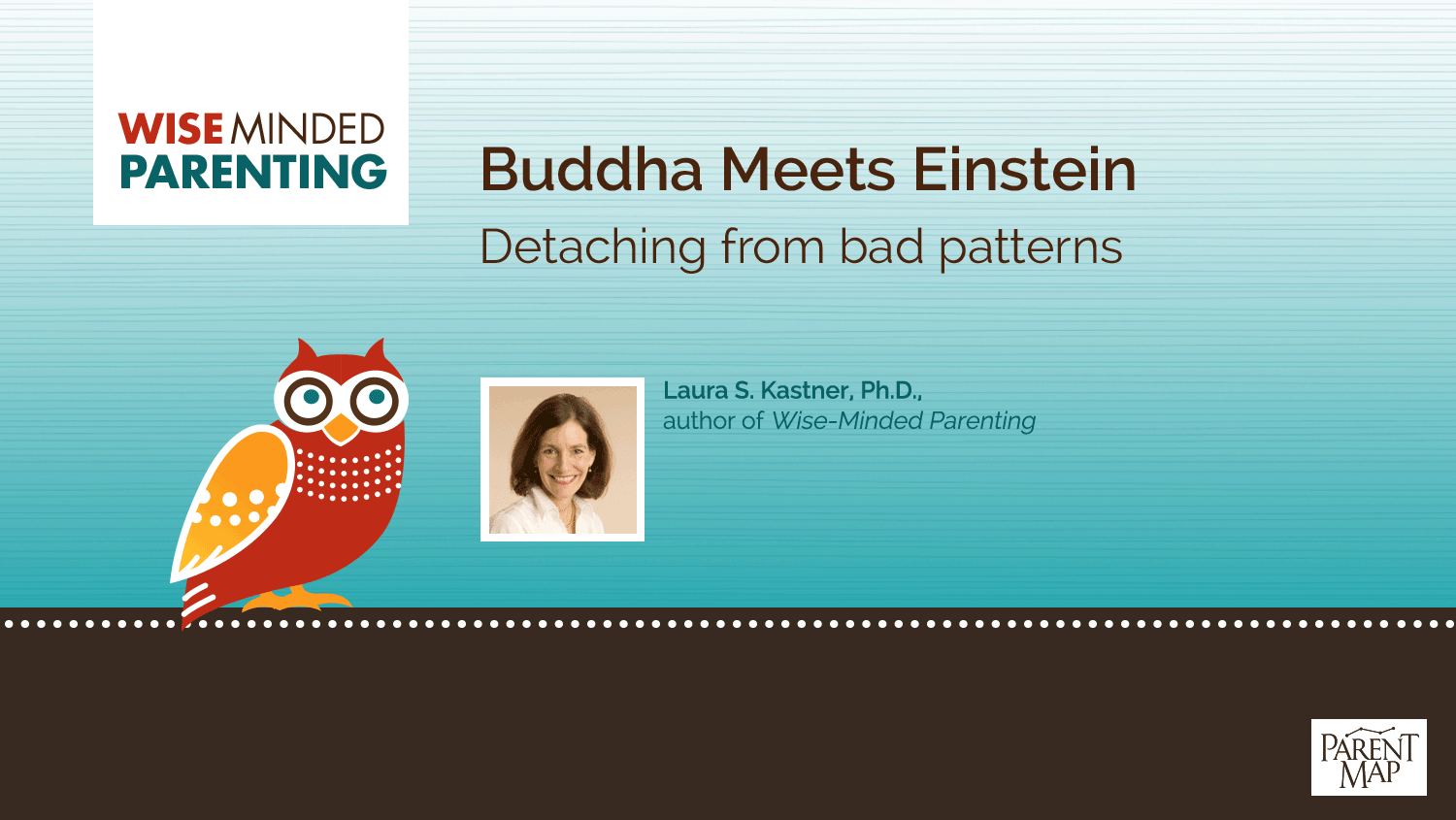 Buddha Meets Einstein: Detaching from bad patterns An inspiring (paraphrased) quote of Albert Einstein: Insanity is doing the same thing over and over and expecting a different result. What sloppy parenting habit do you have that you know is not helping you get what you want out of your kid, but you keep doing it anyway?
Buddha Meets Einstein: Detaching from bad patterns An inspiring (paraphrased) quote of Albert Einstein: Insanity is doing the same thing over and over and expecting a different result. What sloppy parenting habit do you have that you know is not helping you get what you want out of your kid, but you keep doing it anyway?  “Hound Dog” Day: Sniffing out what you’ve been avoiding We tend to avoid things that make us uncomfortable or feel like a burden. What have you pushed to the outside of your awareness that requires more of your parenting attention?
“Hound Dog” Day: Sniffing out what you’ve been avoiding We tend to avoid things that make us uncomfortable or feel like a burden. What have you pushed to the outside of your awareness that requires more of your parenting attention?  “Let It Be” Day Kids often feel like parents constantly nag them, and they can be right. Give both of you a break by declaring an anti-nagging day. For this day, you will, under no circumstances, nag your teen.
“Let It Be” Day Kids often feel like parents constantly nag them, and they can be right. Give both of you a break by declaring an anti-nagging day. For this day, you will, under no circumstances, nag your teen.





